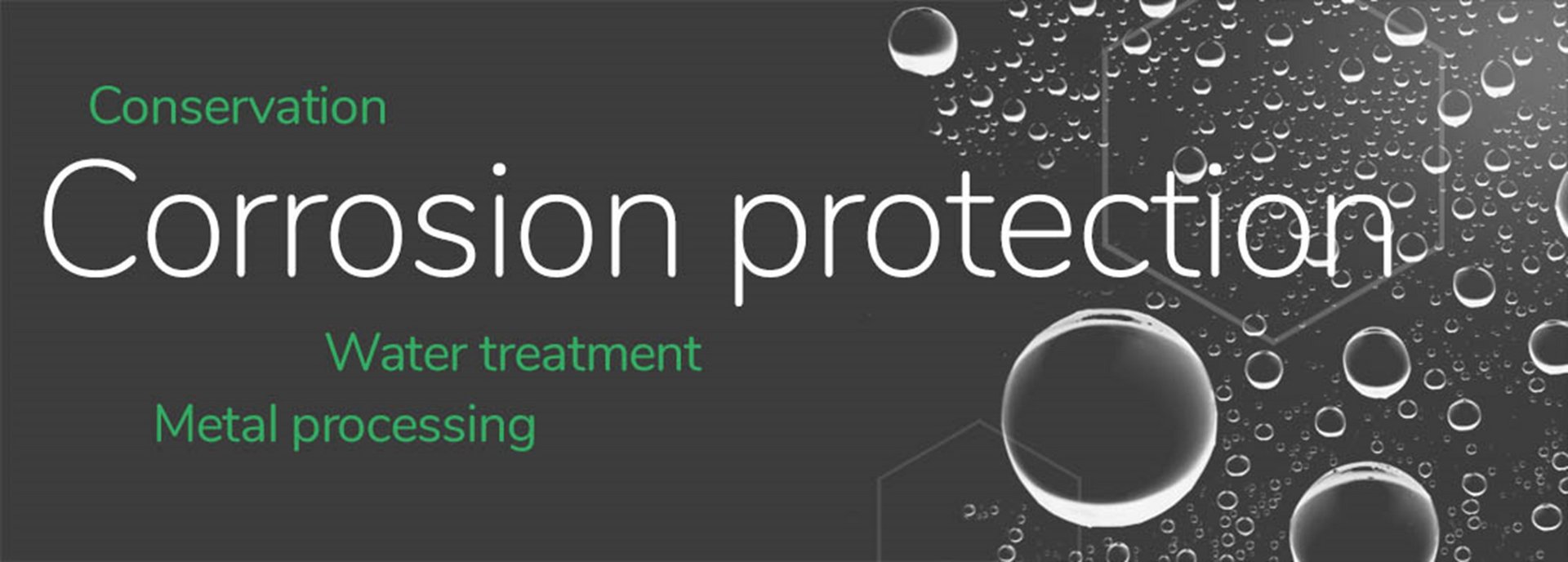
Corrosion inhibitors: a core competence of KEBO
Various types of corrosion protection offer effective methods of protecting metal parts in various industries from corrosion and extending their service life.
These can be inorganic and organic coatings, such as paints, which are applied to surfaces to protect them from moisture and chemical attack. Another example is galvanic anodes, which are used to protect the metal to be protected from corrosion by acting as a metal more susceptible to corrosion and giving off electrons. There is also cathodic corrosion protection. Here, the use of an external power source puts the metal to be protected into a cathodic state to prevent the corrosion reaction.
At KEBO, we have specialized in (corrosion) inhibitors for decades. These chemicals are added to liquid systems to inhibit corrosion by forming a protective layer on the metal surface or changing the chemical environment to slow or prevent the corrosion reaction.
Corrosion inhibitors are used in a variety of industries to inhibit corrosion, such as food processing, oil and gas, water treatment, steel and chemical industries. They are often used in liquid systems. Inhibitors play an important role in corrosion protection due to their versatile application possibilities and the ability to slow down existing corrosion.
If residual scaling is still present after alkaline cleaning, it can be dissolved or broken down with acid so that it can then be dissolved in an etching alkaline solution.
The composition of the scaling and the material of the evaporator to be cleaned are decisive for the selection of the acid. Depending on temperature, cleaning time, metal type and acid, our highly specialized LITHSOLVENT products are used.
Specially developed inhibitors are available for almost all known acids or acid mixtures. They are formulated for the common materials used in evaporators and also take into account the temperature of the desired dry cleaning.
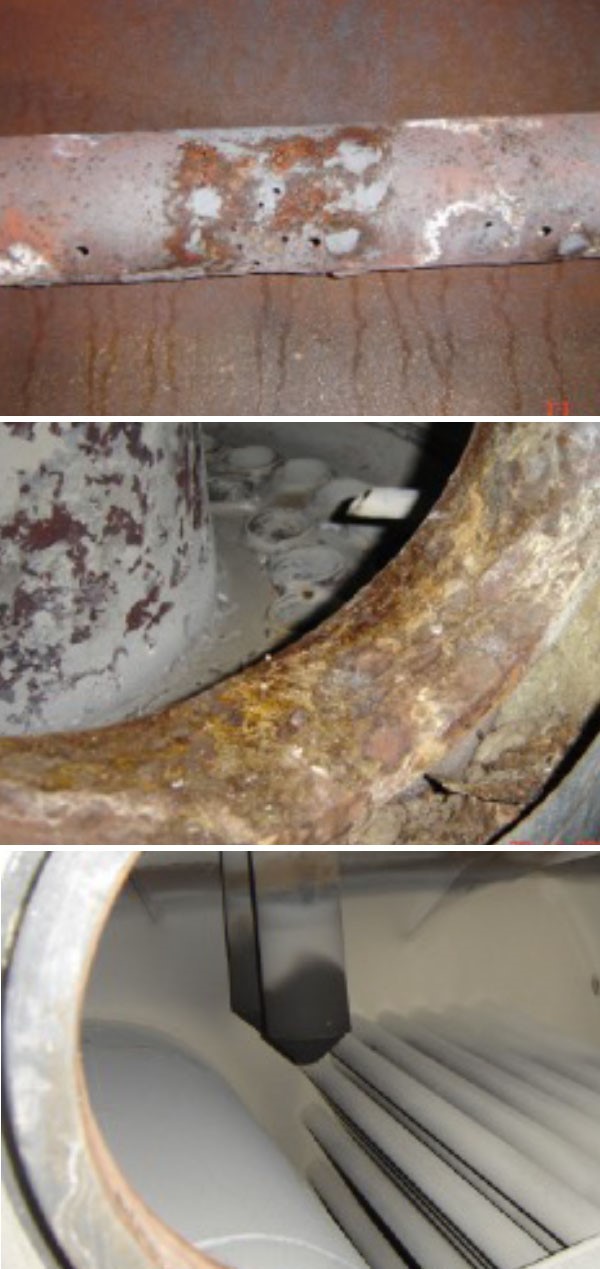
Hardness stabilization and corrosion protection with KEBOCOR
After acid chemical cleaning, materials are very reactive. After pickling, the metal surfaces must be protected from corrosion attacks by atmospheric oxygen and moisture. Steel surfaces in particular quickly become covered with a thin layer of flash rust. To prevent corrosion, so-called passivators are added to the rinsing waters to form a protective layer. This thin, non-conductive layer prevents the predominantly cathodic partial reaction of the corrosion process.
Our KEBOCOR grades prevent the formation of different pH ranges on the surface due to their buffering capacity, so that no stable local anodes can form that lead to rust pustules.
Hardness stabilization and corrosion protection: KEBOCOR products are used in cooling and service water systems where not only hardness stabilization is required, but also corrosion protection of the system.
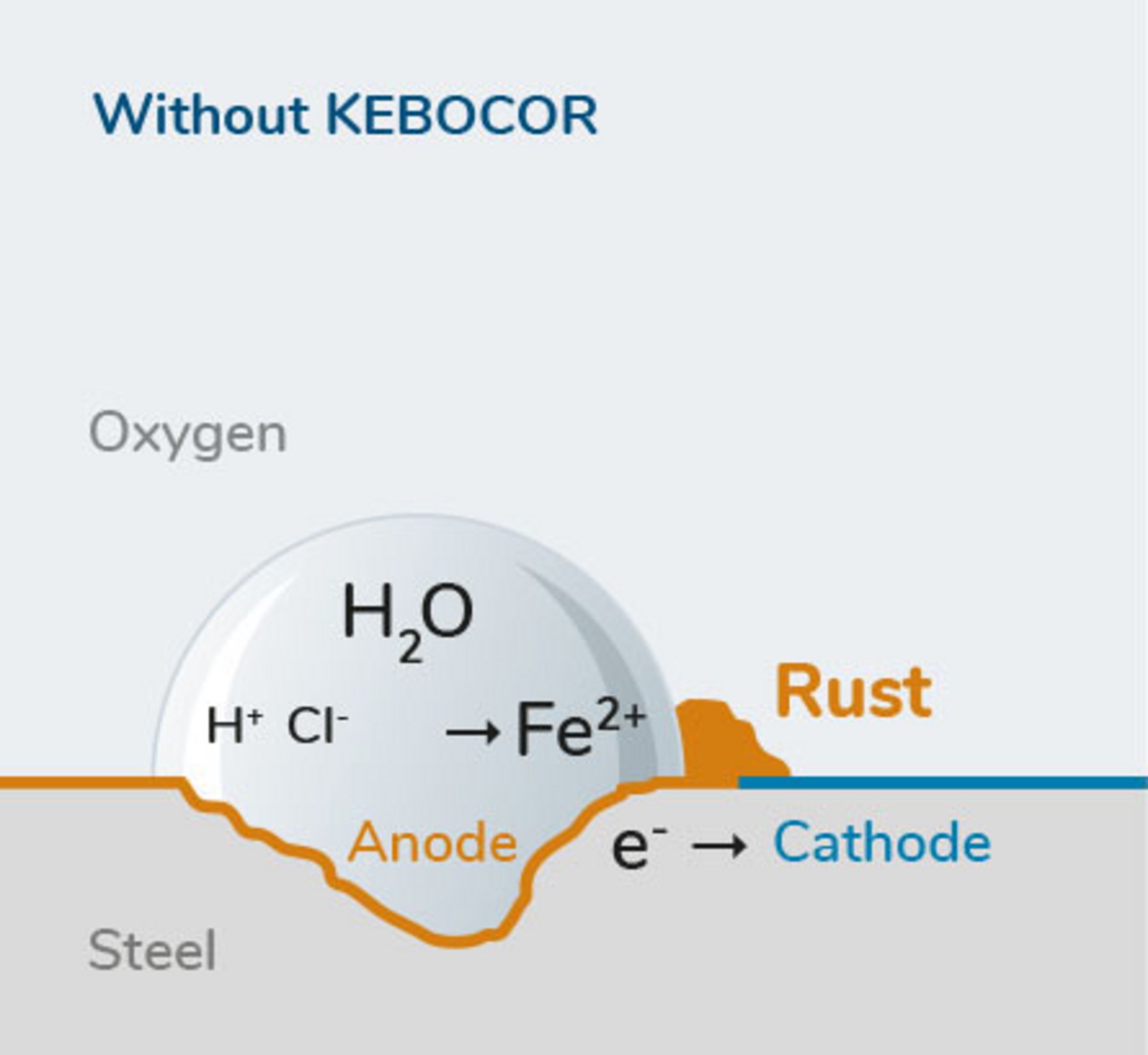
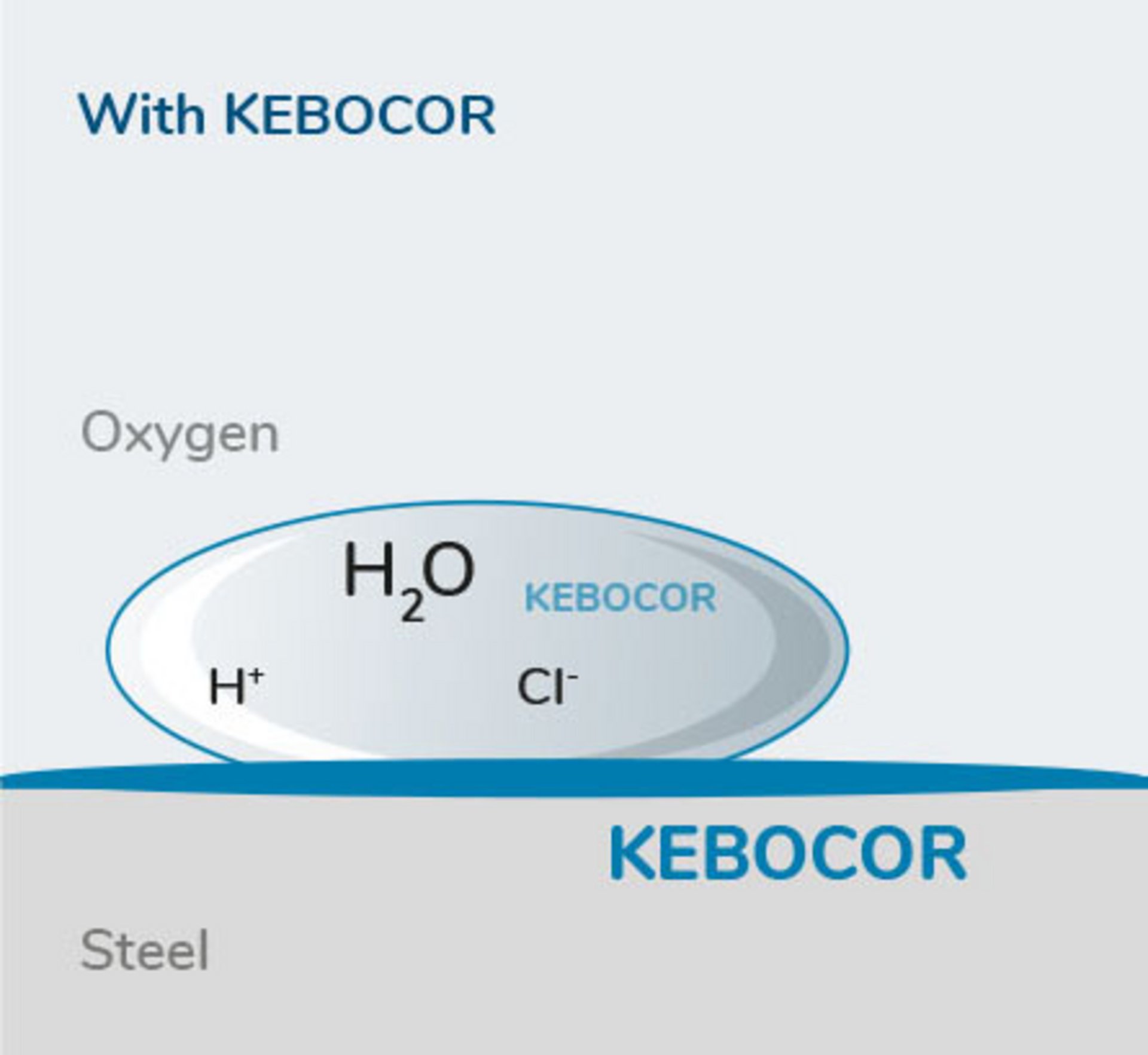
Corrosion protection for standstill preservation
KEBOCOR GFD
Shutdown preservation of steam generators and water-bearing systems in industrial and combined heat and power plants is of great importance in order to extend the service life of the equipment, reduce maintenance requirements and enable rapid recommissioning. Careful execution of idle time preservation reliably protects plant components from idle time corrosion and allows operation to continue smoothly and efficiently
For optimum protection of your plant, we offer various idle time preservation solutions for steam generators and boiler plants, depending on the duration of the idle time and adapted to the specific plant requirements
For example, our KEBOCOR GFD, a corrosion inhibitor with anti-freeze protection for open and closed apparatus in the food processing industry.
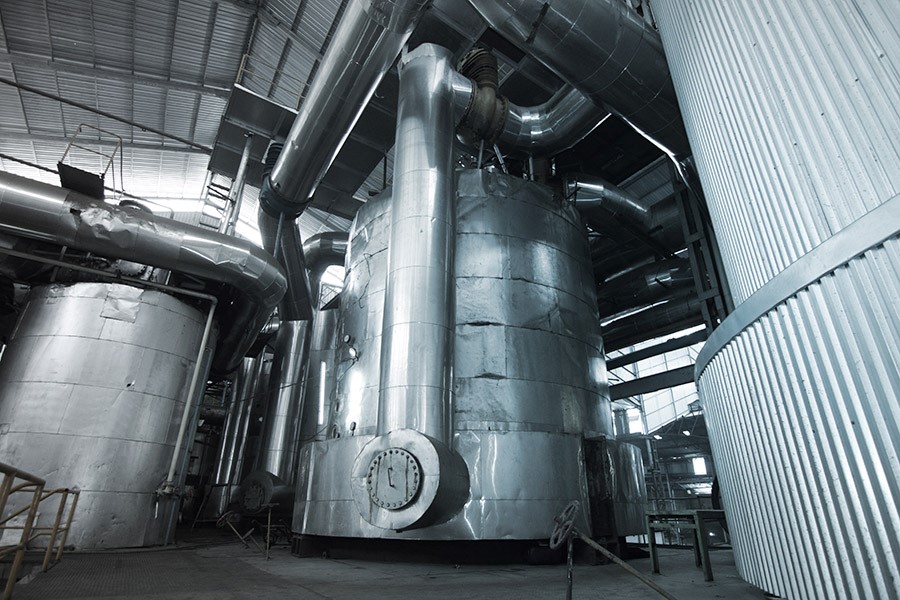
Corrosion inhibitors for water treatment
Corrosion protection in water-bearing systems primarily affects water treatment plants such as cooling towers, heating systems, steam generators and pipelines in which water is used as a medium for cooling, heating or providing process water.
- Corrosion can cause damage to piping, pumps, heat exchangers and other equipment, resulting in expensive repairs or even replacement.
- Corrosion can also affect the efficiency of water treatment equipment by impeding the flow of water, disrupting heat transfer processes or causing scaling. Good corrosion protection helps to maintain optimum performance of the plant.
- Corrosion can lead to contamination of the water, as metal particles can enter the system. By protecting against corrosion, water quality is maintained and metal contamination is minimized.
We support you with suitable corrosion protection measures to reduce operational failures, repair costs and the impairment of water quality!
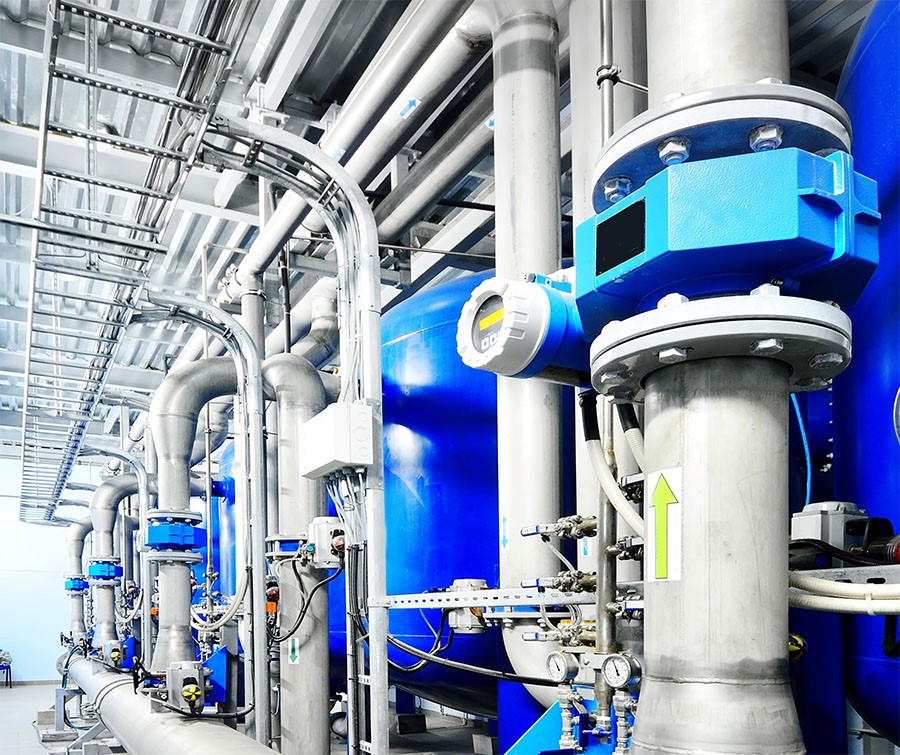
Corrosion inhibitors for metal processing
Our metalworking corrosion inhibitors prevent tarnishing and rusting of steel surfaces during the rinsing process after acid pickling. They have buffering, complexing and film-forming properties.
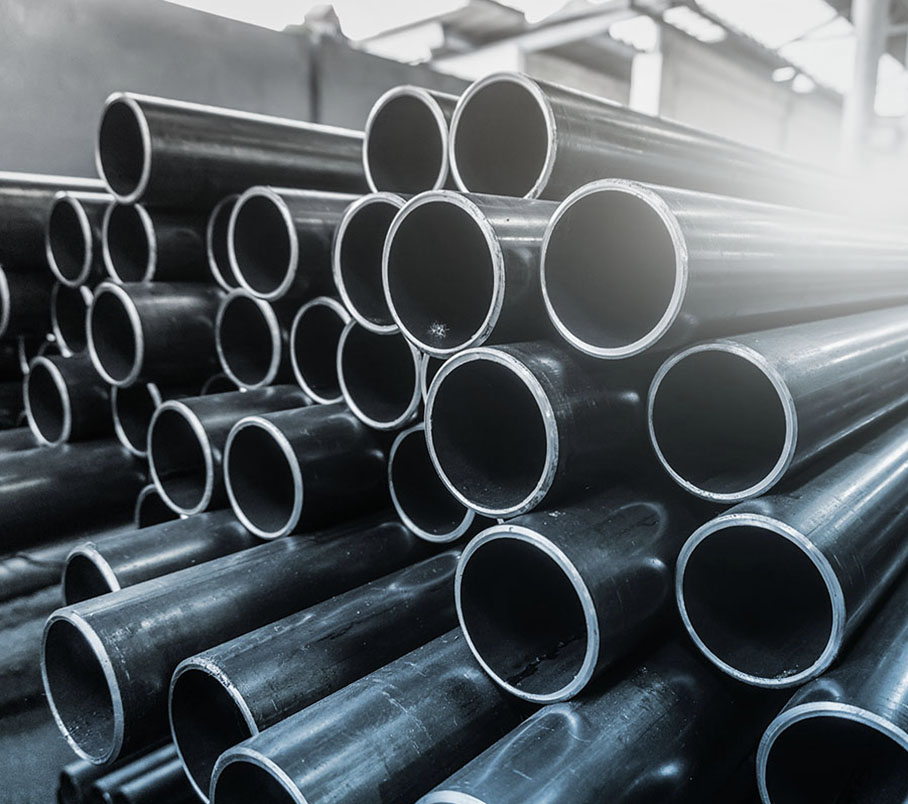
The products shown on our website are only a selection of our entire product range. There is no universal remedy for the rapid removal of impurities. Some can be removed well with alkaline agents, others better in the acidic range. The large variety of conceivable cleaning problems and the large number of additives, inhibitors and ready-to-use cleaning solutions offered by us make it advisable to obtain detailed advice before starting cleaning.
The same applies to inhibitors, defoamers, scale preventers, corrosion inhibitors, pickling inhibitors, etc. Depending on the plant, material, product and the type of boiler/cooling water is used, different individual challenges arise. We are well equipped for them.
Talk to us, we will be happy to help!
On request, we can analyze deposits in our laboratory and develop a cleaning strategy based on our many years of experience, taking into account the conditions on site.